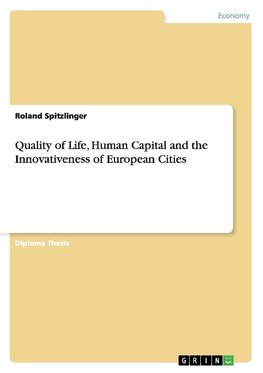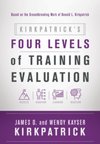
-
 Anglický jazyk
Anglický jazyk
Quality of Life, Human Capital and the Innovativeness of European Cities
Autor: Roland Spitzlinger
Diploma Thesis from the year 2003 in the subject Business economics - Business Management, Corporate Governance, grade: Sehr Gut, University of Applied Sciences Kufstein Tirol (International Business Studies), language: English, abstract: On the turn from... Viac o knihe
Na objednávku, dodanie 2-4 týždne
39.78 €
bežná cena: 44.20 €
O knihe
Diploma Thesis from the year 2003 in the subject Business economics - Business Management, Corporate Governance, grade: Sehr Gut, University of Applied Sciences Kufstein Tirol (International Business Studies), language: English, abstract: On the turn from an industrial to a knowledge based economy the rules of economic geography have changed significantly. Human capital and a high quality of life which attracts it have become the most important factors for urban economic growth.
The goal of the study was to find out whether there is evidence for the hypothesis that European cities with a high quality of life are more innovative. The reasoning is that a nice living environment attracts educated people, which in the next step lures knowledge-based companies and stirs innovative activity.
The results of the statistical analysis carried out by the author prove the hypothesis that quality of life and innovativeness are connected. Specifically a good environmental quality directly supports the production of scientific articles. Together with a high-educated labor force it also attracts innovative high-tech companies, which increase the production of patents. An overall high quality of life and a high income level attract educated people and increase the knowledge base of a city. However, a city does not necessarily have to be rich in monetary resources to achieve a good innovative performance. In fact, the quality of life predicts the innovativeness of European cities better than the income level.
Despite these findings the author also found evidence that a good environmental condition as well as learning effects through industry agglomeration increase the efficiency of knowledge workers. Cities that are home to a big number of high-tech companies and offer a nice environment produce considerably more patents per invested R&D money than other cities.
The results of the study suggest that city officials should turn away from attracting high-tech companies by monetary means and should instead concentrate on improving quality of life, especially stressing environmental cleanness. This should increase the source, which knowledge-based companies really look for in a knowledge based market place, highly educated professionals.
- Vydavateľstvo: GRIN Verlag
- Rok vydania: 2010
- Formát: Paperback
- Rozmer: 210 x 148 mm
- Jazyk: Anglický jazyk
- ISBN: 9783640630714











